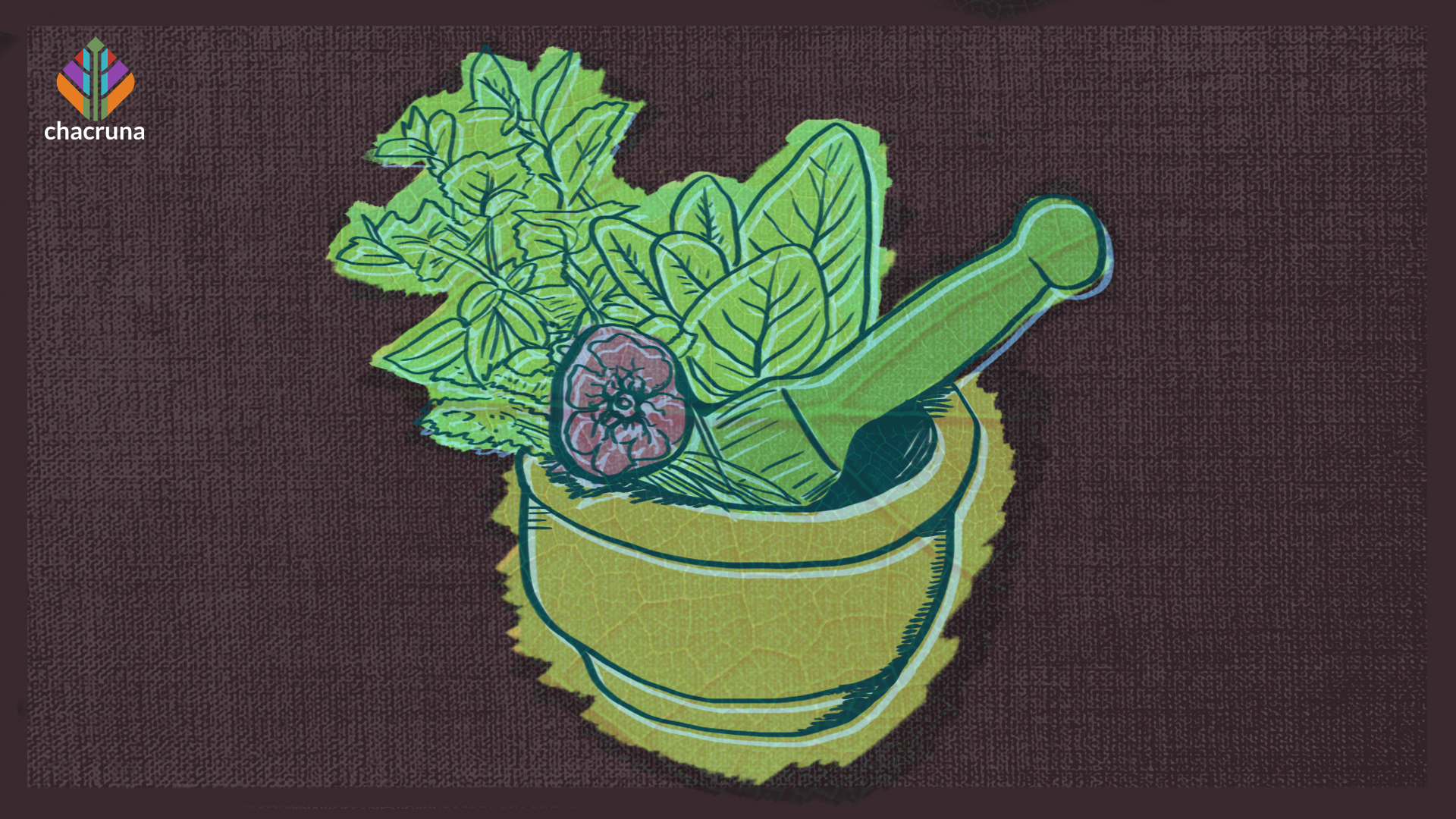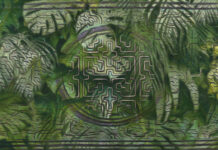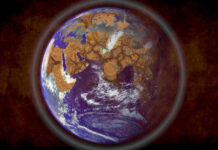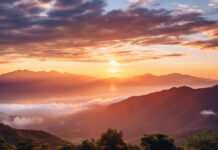- The Emergent Field of Psychedelic Chaplaincy - April 19, 2022
- Preparing Ourselves for the Psychedelic Future with Berra Yazar-Klosinski - November 3, 2021
- Stewarding Psychedelic and Ecological Biospheric Wisdom with Deborah Parrish Snyder - October 13, 2021
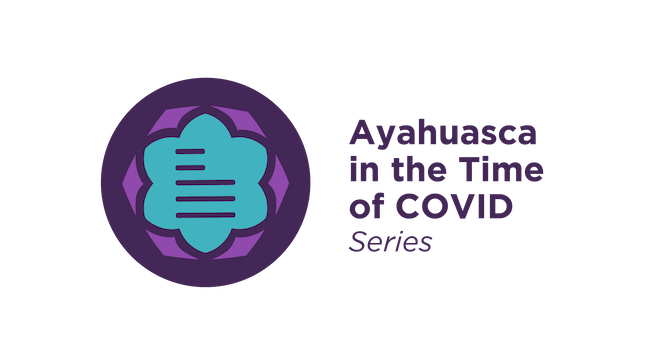
The burgeoning expansion of ayahuasca around the globe has allowed for the evolution of an infinitely diverse array of ayahuasca practices and communities, spanning from Indigenous groups in the Amazon Basin and traditional ayahuasca churches in Brazil to newly evolving neoshamanic traditions in North America, Europe, and beyond. This series will examine how the practices and traditions of these diverse communities are evolving to meet the challenges that have emerged as a result of the global pandemic and the measures taken to mitigate its impact.
One cannot talk about ayahuasca without reference to Indigenous communities. In part three of our four-part series, we explore the impacts of COVID on Indigenous communities in the Amazon Basin. The pandemic has been especially challenging for Indigenous groups who are generally at the bottom of the socioeconomic ladder. Looking at ayahuasca communities worldwide, the economic ramifications of the pandemic have undoubtedly had the largest impact on Indigenous ayahuasca communities, who often rely on tourism for their incomes or on traveling to administer their services, generally living on a day-to-day basis.
Amazonian Elders Under Threat
The untimely loss of elders presents an enormous blow to Indigenous communities, in that elders are the foundational pillars and knowledge bases for their entire cultures.
The rapid spread of COVID-19 in Amazonian Indigenous territories threatens to wipe out the last generation of Indigenous elders. The untimely loss of elders presents an enormous blow to Indigenous communities, in that elders are the foundational pillars and knowledge bases for their entire cultures. As Richard Evans Schultes (1994, p. 24) famously stated, “Each time one of the medicine men dies, it is as if a library has burned down.”
Waorani activist Nemonte Nenquimo, shared in this sentiment by reflecting on how Indigenous elders saved their cultures in the past by teaching the community how to fight rubber tappers, oil companies, and loggers. “If our elders die now, the youth will lose their way and won’t be able to survive against all of the threats,” she says (Anderson, 2020).
For this reason, Sophia Rokhlin, co-author of When Plants Dream, Technical Secretary of the Amazon Emergency Fund, and member of Chacruna’s Ayahuasca Community Committee, emphasizes the need for caution in relation to the ayahuasca tourism industry in South America. Rokhlin stresses that a distinction ought to be made between when people can start traveling to the Amazon, and when it is responsible for people to travel to the Amazon.
Indigenous communities throughout the Amazon Basin face disproportionally high risks during pandemics for reasons that include lack of political representation, economic marginalization, lack of healthcare facilities, and malnutrition, to name a few. The communal way of life of some Indigenous groups is another exacerbating factor that tends to increase the possibilities for contagion.
Indigenous communities throughout the Amazon Basin face disproportionally high risks during pandemics for reasons that include lack of political representation, economic marginalization, lack of healthcare facilities, and malnutrition, to name a few.
“Elders are the keepers of wisdom, and it is not a question of supporting an individual, but rather supporting an entire cultural history,” says Rokhlin. “Ultimately, the wise choice is to take as long as needed in order to ensure we do not put elders at risk.”
The Weaponization of Coronavirus
The Amazon rainforest extends across nine South American countries, with the majority of its Indigenous communities living within Brazil’s borders and, as such, Brazil is ripe with Indigenous ayahuasca traditions.
The Brazilian government has taken a denialist stance towards coronavirus that has been detrimental to the country as a whole, but especially detrimental towards Indigenous peoples who sit at the bottom of the socioeconomic ladder, often living in remote regions of the Amazon hundreds of kilometers away from the nearest hospital, with little access to medical personnel.
Indigenous groups have not only been abandoned, they are also being actively persecuted by the government of Jair Bolsonaro, who has dismantled several environmental protection agencies in order to further develop Brazil’s powerful agribusiness sector, along with other industrial pursuits.
Indigenous groups have not only been abandoned, they are also being actively persecuted by the government of Jair Bolsonaro, who has dismantled several environmental protection agencies in order to further develop Brazil’s powerful agribusiness sector, along with other industrial pursuits. Bolsonaro has expressed time and time again that he sees Indigenous peoples as an obstacle that stands in the way of mining and agribusiness pursuits, and that he is “not getting into this nonsense of defending land for Indians.”
At the 75th Session of the U.N. General Assembly, Bolsonaro gave a speech, negating claims that he and his government have abandoned Indigenous communities, asserting that international institutions are engaged in a disinformation campaign trying to muddy his treatment of Indigenous groups and his management of the Brazilian Amazon for their own ulterior motives.
What’s more, Bolsonaro denied responsibility for the blazing fires laying waste to the Amazon, shifting the blame to Indigenous groups by asserting that, “fire outbreaks occur virtually at the same places in the eastern surroundings of the forest where Brazilians of Indigenous ancestry burn their farmland in search of livelihood.”
the virus itself is leveraged and weaponized in order to eradicate those who are not aligned with a worldview that prioritizes economic growth above all else.”
Speaking on the issue, Rokhlin asserts that coronavirus is not an apolitical issue. “Illegal miners and loggers are explicitly encouraged by the Brazilian government,” she says. “This is where we can see that the virus itself is leveraged and weaponized in order to eradicate those who are not aligned with a worldview that prioritizes economic growth above all else.”
Although some Indigenous groups of the Amazon live in relative isolation, the region is being overrun by wildcat gold miners, illegal loggers, and evangelical missionaries, who are not only bringing environmental degradation, but who are also are agents of infection.
In addition, a new report by NASA used satellite data to shed light on the issue, revealing a surge in deforestation since the spread of the pandemic because Indigenous communities are spending time in isolation, no longer able to patrol and monitor their forests to prevent illegal extractive activities like mining and logging.
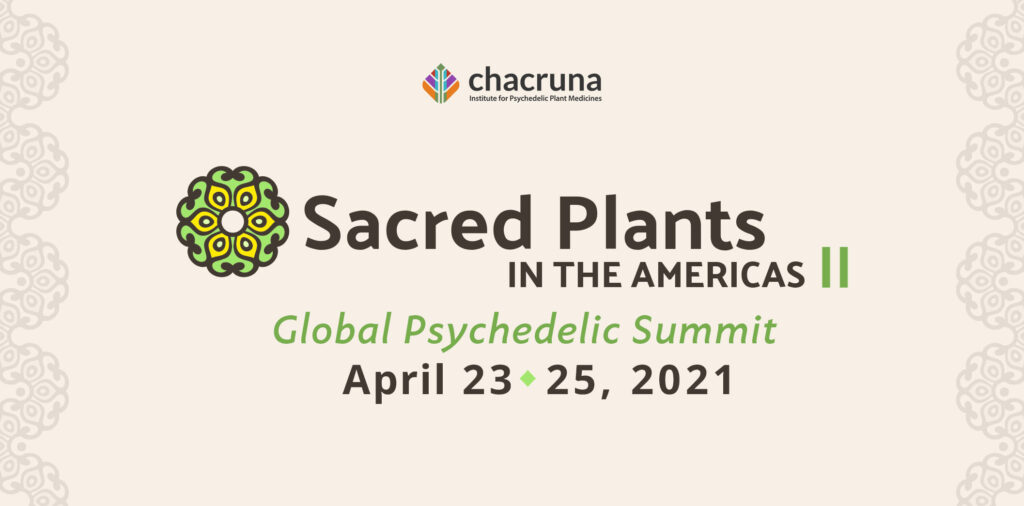
Join us at Sacred Plants in the Americas II
Building Resilience Through Traditional Medicine
The Kokama were the first Indigenous group in Brazil to be infected with coronavirus and, in the first few months of the pandemic, coronavirus cases amongst the Kokama soared. Like many other Indigenous groups, the Kokama have become wary and distrustful of Western medicine, feeling that they are treated poorly in public hospitals, and having seen loved ones returning in coffins after seeking medical care. As a result, the Kokama made a collective decision to avoid public hospitals and, instead, have turned back to traditional medicines in order to combat the virus (Ribiero, 2020).
It remains uncertain as to whether the Kokama’s declining death rate is a result of reduced contact with the outside world, or if ayahuasca and other plant medicines are effective in treating the virus to some degree.
The Kokama are treating COVID-19 symptoms with ayahuasca and a regimen of other plants in combination with social distancing and hygiene practices and have offered treatment to more than 800 Indigenous community members (Ribiero, 2020). This new regimen has helped reduce the number of deaths significantly; however, it is important to note that, to date, there is no empirically validated evidence that ayahuasca is an effective treatment for coronavirus. It remains uncertain as to whether the Kokama’s declining death rate is a result of reduced contact with the outside world, or if ayahuasca and other plant medicines are effective in treating the virus to some degree.
Similar to the Kokama of Brazil, the Siekopai peoples, otherwise referred to as the Secoya, were one of the first communities in the Ecuadorian Amazon with coronavirus cases. Jimmy Piaguaje, member of the Siekopai Nation, shared his thoughts on the spread of the virus within his community.
“The areas surrounding our community are being exploited for oil and used as farmland to produce palm oil so I, and others, are frequently in contact with people who come from outside,” he says. “Within our community, the elders were the first to be affected, and two of our elders seemed to have symptoms of COVID.”
Piaguaje recounts how many in his community, including a highly respected Siekopai teacher, went to a nearby hospital, spending days and even weeks there, only to pass away. “This created mistrust in our community and we became suspicious of Western medicine and doctors,” says Piaguaje.
However, Piaguaje feels that the lack of government support and discriminatory treatment in hospitals has strengthened the Siekopai by forcing them to turn back to traditional plant medicines, such as yagé (the Siekopai term for ayahuasca) and mañapë (a purgative used before drinking ayahuasca). He remarked,
“Not only have the Siekopai been able to cure themselves with plant medicines, but when they saw that it helped them recover from COVID, they also helped other communities, such as the Siona, Kofan, and Quechua, as well as mestizo [mixed European-Indigenous descent] communities. The Siekopai Nation has experience from past pandemics that decimated the population; so, now, the community has more confidence in plant medicine, which has made us value the land in which these medicines are found.”
Beyond the use of yagé, Piaguaje shared that the Siekopai have started using a mixture of seven different plants that come from their ancestral lands to treat the symptoms of COVID. In the past, the Siekopai’s territory was extensive, including a part of the Peruvian Putumayo, as well as what is today known as Agua Rico and Napo in Ecuador. “We no longer have these lands, although we are fighting to recover them,” he says.
Piaguaje connects the current crisis to the environmental degradation taking place because of consumerism. “This is a call for humanity to wake up and realize that we are doing something wrong, and that our current ways of life are not helping us live in equilibrium with nature,” he says.
Rokhlin also notes how Indigenous and traditional forest peoples, including the Shipibo from the Ucayali region in Peru, have turned to natural medicine in their efforts to mitigate the impact of coronavirus. She explains, “communities naturally turned to natural medicines and traditional plant-remedies.”
Western biomedicine is not alone in developing technologies and approaches to combatting coronavirus; the people of the Amazon have also been experimenting with traditional plants, trying out new things, and finding out what works. The Association of Indigenous Artisans of São Gabriel da Cachoeira held a workshop on September 1–3 to share methods and traditional plant medicines to combat coronavirus. The association is mostly comprised of women from the Upper Rio Negro who gather to share ancestral wisdom and exchange knowledge about their newly-developed treatment protocols.
An Urgent Call for Reciprocity
Since the onset of coronavirus, numerous grassroots initiatives and relief-fund campaigns have been set up by people all over the world to support Indigenous groups by providing basic necessities and provisions. Many people who have been working deeply with Indigenous healers have created relief-fund campaigns as a kind of “reciprocity aid,” serving as a way of giving back to Indigenous peoples who have generously shared their medicines, traditions, and wisdom.
The Amazon is reaching a critical tipping point in which an unprecedented convergence of crises is threatening Indigenous communities, their traditions, and their homeland. The very wisdom that many of us in the psychedelic community have been beneficiaries of faces this same existential threat. In order for the psychedelic community to maintain its integrity, it is necessary to make ourselves aware of the issues and enact reciprocity towards those who have been our benefactors.
In a recent call to action, Ninawa Huni-Kuin, Chief of the Ninawa Huni Kuin and President of the federation of the Huni Kuin people of Acre, shared that there can be no individual, personal healing when we are living in a sick world, urging us to stand in solidarity with forest peoples who have been the guardians of sacred medicines for time immemorial. “This collective healing is about being engaged and committed to the struggle of the guardians of the plant medicines, who are Indigenous peoples,” he says. “ Especially now, this reciprocity with Indigenous peoples is very urgent and important.”
There are many organizations dedicated to providing help to the communities hard-hit by the pandemic. The Amazon Emergency Fund is a newly formed coalition of 30-plus NGOs working together with Indigenous organizations to deliver humanitarian aid in the Amazon Basin. For those who, in the spirit of reciprocity, would like to take action, the AEF guarantees that 100% of donations are channeled directly to affected communities, helping support critical supply purchases, protection for forest guardians, and urgent care, as well as food sovereignty and community resilience programs.
If we are truly interested in enacting healing that transcends an individualist paradigm, we, in the psychedelic community, ought to have a broader perspective, maintaining awareness of the fact that the constellation that ayahuasca exists within is undoubtedly more important than the plant itself.
If we are truly interested in enacting healing that transcends an individualist paradigm, we, in the psychedelic community, ought to have a broader perspective, maintaining awareness of the fact that the constellation that ayahuasca exists within is undoubtedly more important than the plant itself. In examining the impact of COVID on Indigenous communities, we need to step beyond ayahuasca and ground ourselves in the understanding that our planetary wellbeing is inextricably intertwined with the health of the Amazon and its communities. The pandemic has served as a reminder of the interconnection of life on our planet, helping to erode the illusion of separation that we have been operating under.
Art by Mariom Luna.
References
Anderson, M. (2020, April 24). “Go make camps deeper in the forest.” How the Amazon’s Indigenous people are handling the threat of the coronavirus. Time. https://time.com/5826188/amazons-Indigenous-people-coronavirus/
Pinchbeck, D. & Rokhlin, S. (2019). When plants dream. Ayahuasca, Amazonian shamanism and the global psychedelic renaissance. London, UK: Watkins.
Ribeiro, M. F. (2020, August 17). Favoring ayahuasca over hospitals, Indigenous Kokama see COVID-19 deaths drop in the Amazon. Mongabay. https://news.mongabay.com/2020/08/favoring-ayahuasca-over-hospitals-Indigenous-kokama-see-covid-19-deaths-drop/
Schultes, R. E. (1994). Burning the library of Amazonia. The Sciences, 34(2), 24–30. https://doi.org/10.1002/j.2326-1951.1994.tb03148.x
Take a minute to browse our stock:
Did you enjoy reading this article?
Please support Chacruna's work by donating to us. We are an independent organization and we offer free education and advocacy for psychedelic plant medicines. We are a team of dedicated volunteers!
Can you help Chacruna advance cultural understanding around these substances?










